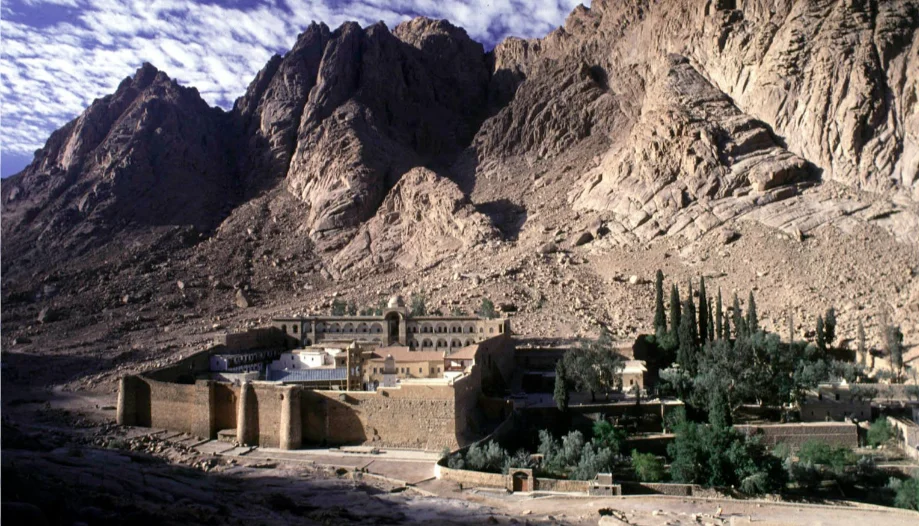The historic Orthodox monastery of Santa Catalinalocated at the foot of Mt. Sinai and founded in the 6th century by Emperor Justinian, has officially passed into the hands of the Egyptian state following a controversial ruling handed down on May 28 by the Ismailia court. This decision puts an end to more than 1,500 years of autonomy of what is one of the oldest functioning Christian monasteries in the world.
The judicial resolution orders the confiscation of all the assets of the monastery - including properties, libraries, relics and priceless manuscripts and icons - and establishes that its management will pass entirely to the State. The twenty monks who make up the community are restricted access to some areas, being allowed to stay only for liturgical purposes and under conditions imposed by the civil authorities.
A spiritual and cultural heritage under threat
Santa Catalina, declared a UNESCO World Heritage Site, has been a symbol of coexistence and interreligious respect for centuries. Traditionally considered a vakuf -The site, a sacred place respected by Islam, had enjoyed the protection of Bedouin communities and the Egyptian state itself, even in times of political turmoil.
However, for years, the monastery has been the target of legal actions promoted by various instances of the Egyptian state apparatus. Some analysts attribute this offensive to radical sectors of the so-called "deep state", especially since the era of the Muslim Brotherhood, and point to the inability of President Abdel Fattah al-Sisi to contain these pressures.
Although officials such as archaeologist Abdel Rahim Rihan have defended the ruling as an action aimed at "enhancing the heritage for the benefit of the world and the monks themselves", the religious community denounces a "de facto expulsion" and a direct threat to the survival of the site as a spiritual center.
Reactions and diplomatic impact
The impact of the sentence has already crossed borders. Greece has reacted harshly to what it considers an attack against a symbol of Hellenism and Orthodoxy. The Greek Orthodox Archbishop of Athens, Ieronymos, expressed his indignation: "I do not want and I cannot believe that today Hellenism and Orthodoxy are experiencing another historical 'conquest'. This spiritual beacon is now facing a question of survival."
Both the Greek Government and the Ecumenical Patriarchate of Constantinople expressed their profound rejection of the decision, which they describe as unacceptable and worrying for the future of the emblematic religious enclave.
Greek Foreign Minister George Gerapetritis immediately communicated with his Egyptian counterpart to express Greece's official position. "There is no room for deviation from the common understanding of both sides, expressed by the leaders of the two countries in the framework of the recent High Cooperation Council held in Athens," the minister stressed, referring to bilateral commitments on respect for cultural and religious heritage.
For his part, Ecumenical Patriarch Bartholomew I, the highest spiritual authority of the Orthodox Church, expressed his dismay at what he considers an attack on the historical regime of protection of the monastery. "The Ecumenical Patriarchate was informed with painful surprise that the competent court of Egypt has called into question the property regime of the historic Holy Monastery of Sinai," he lamented in a statement.
The monastic community has announced the launch of an international awareness and information campaign aimed at Churches, religious communities and international organizations, with the aim of reversing the measure. The geopolitical context adds even more tension: Egypt is currently immersed in the regional crisis arising from the conflict in Palestine and the presence of jihadist groups in the Sinai Peninsula, some of which have directly threatened the monastery in the past.
With this expropriation, not only is a thousand-year-old tradition of monastic autonomy broken, but a far-reaching diplomatic and ecclesial wound is reopened. The future of St. Catherine, the spiritual jewel of Eastern Christianity, is now in question.








